CBD oil for Hashimoto’s Disease
Estimated reading time: 11 minutes
- Introduction – CBD oil for Hashimoto's Disease
- Understanding Hashimoto's – Hyperthyroidism
- Benefits of CBD for Hashimoto's Disease
- Common conventional treatments for Hashimoto's disease
- Best CBD products for Hashimoto's disease
- More important considerations – CBD for Hashimoto's Disease
- FAQ
- Conclusion – CBD for Hyperthyroidism and Hashimotos
- The Real CBD for Hashimotos
Introduction – CBD oil for Hashimoto's Disease
You may be wondering if CBD oil for Hashimoto's disease is appropriate, even after learning that it can be beneficial for autoimmune disorders in general. All autoimmune diseases are unique, after all. CBD for Hyperthyroidism.
Let us examine particularly how CBD may affect thyroid function.
Unfortunately, there are not many studies that specifically explore the connection between thyroid function, hormones, and CBD. However, as time goes on, we will see an increasing amount of information about it.
As of right now, some research suggests that endocannabinoids, and thus exogenous cannabinoids as well, can trigger the release of thyroid stimulating hormone (TSH) from the hypothalamus.
Understanding Hashimoto's – Hyperthyroidism

Hashimoto's Disease, also known as Hashimoto's Thyroiditis, is an autoimmune disorder that affects the thyroid gland. This condition occurs when the immune system mistakenly targets and damages the thyroid tissue. As a result, the thyroid becomes inflamed and unable to produce enough hormones, leading to various health issues.
Common symptoms of Hashimoto's Disease include fatigue, weight gain, muscle weakness, and depression. Managing these symptoms can be challenging, and traditional treatments often involve hormone replacement therapy. However, CBD offers a natural alternative that is worth considering.
This is important because hypothyroidism, the main cause of which is Hashimoto's disease, is largely caused by low TSH levels. The thyroid produces hormones in response to TSH.
Possible cannabinoid receptors on the thyroid itself suggest that cannabinoids may assist regulate the thyroid rather than stimulating it, in a similar way to how they operate as an immune regulator rather than an immune stimulant. This implies that both Graves' and Hashimoto's illnesses could develop.
Even more encouraging, these receptors appear to affect the synthesis of T3 and T4 hormones.
Benefits of CBD for Hashimoto's Disease

Hashimoto's disease, an autoimmune thyroid disorder, affects millions of people worldwide. While conventional treatments are often recommended, there is growing interest in the potential benefits of CBD, or cannabidiol, as a complementary approach to managing this condition – CBD for Hyperthyroidism. In this article, we will delve into the potential advantages of incorporating CBD into your Hashimoto's disease management plan.
1. Anti-Inflammatory Properties
One of the primary benefits of CBD is its anti-inflammatory properties. Hyperthyroidism and Hashimoto's involves inflammation of the thyroid gland as the immune system mistakenly attacks it. CBD may help reduce this inflammation, potentially alleviating some of the discomfort and symptoms associated with the condition.
Get your CBD for Inflammation here
2. Stress Reduction
Stress can exacerbate the symptoms of Hashimoto's disease, leading to fatigue and worsened thyroid function. CBD is known for its ability to promote relaxation and reduce stress and anxiety. By managing stress levels, CBD may contribute to an improved quality of life for individuals with Hashimoto's.
Find your CBD for stress and anxiety here
3. Immune System Regulation
Hashimoto's disease is characterized by an overactive immune system, which attacks the thyroid gland. CBD has been studied for its potential to modulate immune system responses. While more research is needed, CBD may help regulate the immune system and reduce the severity of autoimmune attacks on the thyroid.
4. Pain Management
Some individuals with Hashimoto's disease experience muscle and joint pain. CBD's analgesic (pain-relieving) properties may offer relief from these symptoms, enhancing overall comfort and mobility.

5. Improved Sleep
Sleep disturbances are common in Hashimoto's disease. CBD's calming effects may assist individuals in achieving better sleep quality. CBD for Hyperthyroidism – this is crucial for overall well-being and thyroid health.
6. Mood Enhancement
Depression and mood swings can accompany Hashimoto's disease. CBD's potential to improve mood and reduce symptoms of depression may benefit those dealing with this condition.
7. Potential Weight Management
Weight gain is a common symptom of Hashimoto's disease due to slowed metabolism. While not a replacement for a healthy diet and exercise, some individuals report that CBD has helped them manage their weight more effectively.
8. Overall Well-Being
CBD's holistic approach to well-being may contribute to an improved sense of vitality and health, which can be especially important for individuals with chronic conditions like Hashimoto's disease.
Specific Study on CBD for Hashimoto's Disease and thyroid health
A Word of Caution
While CBD shows promise as a complementary approach to managing Hashimoto's disease, it's crucial to consult with a healthcare professional before incorporating it into your treatment plan. They can provide personalized guidance and ensure that CBD is safe and appropriate for your specific situation.
Common conventional treatments for Hashimoto's disease

Thyroid Hormone Replacement Therapy (Levothyroxine)
- The primary treatment for Hashimoto's disease is thyroid hormone replacement therapy. Levothyroxine, a synthetic form of the thyroid hormone thyroxine (T4), is typically prescribed. This medication helps restore thyroid hormone levels in the body, which can alleviate symptoms like fatigue, weight gain, and cold intolerance.
Regular Thyroid Function Monitoring
- Patients with Hashimoto's disease require regular monitoring of their thyroid function through blood tests. Thyroid-stimulating hormone (TSH) and thyroid hormone levels (T3 and T4) are measured to ensure that the medication dosage is appropriate. Adjustments may be made as needed.
Lifestyle Modifications
- Adopting a healthy lifestyle can complement conventional treatment. This includes maintaining a balanced diet, getting regular exercise, managing stress, and getting adequate sleep. These measures can help improve overall well-being and support thyroid health.
Treatment of Coexisting Conditions
- Hashimoto's disease is often associated with other autoimmune conditions, such as celiac disease or type 1 diabetes. Managing these coexisting conditions is crucial to overall health and may involve additional treatments and dietary modifications.
Calcium and Vitamin D Supplements (if needed)

- Some individuals with Hashimoto's disease may develop calcium and vitamin D deficiencies, especially if they have associated conditions like hypoparathyroidism. In such cases, supplementation may be necessary under the guidance of a healthcare professional.
Regular Follow-Up with an Endocrinologist
- Patients with Hashimoto's disease should have regular follow-up appointments with an endocrinologist or thyroid specialist. These specialists can provide expert guidance on medication management and monitor thyroid health over time.
Thyroid Surgery (in rare cases)
- In severe cases of Hashimoto's disease or if thyroid nodules develop, surgical removal of part or all of the thyroid gland may be necessary. This is typically reserved for situations where other treatments have not been effective or when there are concerns about cancerous nodules.
Radioactive Iodine Therapy (in rare cases)
- Radioactive iodine therapy is another option for managing thyroid nodules or overactive thyroid (hyperthyroidism) that can sometimes occur alongside Hashimoto's disease. This treatment involves taking radioactive iodine orally to shrink or ablate thyroid tissue.
Best CBD products for Hashimoto's disease
When considering CBD products for Hashimoto's disease, it is essential to choose high-quality options that are safe and effective. Here is a list of some of the best CBD for Hyperthyroidism that may be suitable for individuals dealing with Hashimoto's disease:
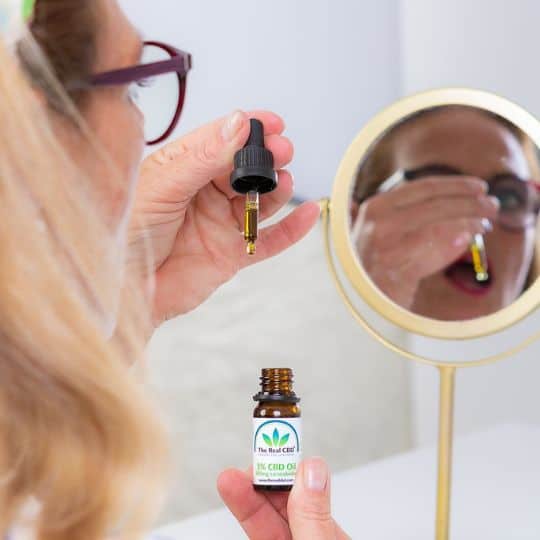
Full-Spectrum CBD Oil
- Full-spectrum CBD oil contains a wide range of cannabinoids, terpenes, and other beneficial compounds from the cannabis plant. This comprehensive blend may provide enhanced therapeutic effects for individuals with Hashimoto's disease.
Capsules or Softgels
- CBD capsules and softgels offer a convenient and precise way to take CBD. They come in pre-measured doses, making it easy to control your CBD intake.
Skincare with CBD – Topicals
- CBD-infused creams, balms, and lotions can be applied directly to areas experiencing pain or inflammation. They may provide localized relief for muscle and joint discomfort, which can be common in Hashimoto's disease.
Gummies with CBD
- CBD-infused edibles, such as gummies or chocolates, offer a tasty and discreet way to consume CBD. They can be a good option for those who prefer not to use tinctures or capsules.
More from our CBD articles
More important considerations – CBD for Hashimoto's Disease
CBD Isolate
- CBD isolate products contain pure CBD, with no other cannabinoids or compounds. They may be a suitable option for individuals who want to avoid any trace of THC or other compounds found in full-spectrum products.

Third-Party Tested Products
- Look for CBD products that undergo third-party testing. This ensures that the product contains the stated amount of CBD and is free from contaminants, providing peace of mind regarding quality and safety.
Organically Grown CBD
- Whenever possible, choose CBD products sourced from organically grown hemp. Organic practices reduce the likelihood of exposure to pesticides and other harmful chemicals.
Consult with a Healthcare Professional
- Before starting any CBD product, it is crucial to consult with a healthcare provider who can provide personalized advice based on your specific health needs and any medications you may be taking.
How to speak to your doctor about CBD
Start with a Low Dose
- When trying CBD for the first time, start with a low dose and gradually increase it as needed. This allows you to gauge how your body responds to CBD and find the right dosage for your symptoms.
Remember that CBD should be considered a complementary approach to managing Hashimoto's disease and should not replace prescribed medications or treatments. It is essential to work closely with your doctor to ensure that CBD is a safe and suitable addition to your overall wellness plan.
FAQ
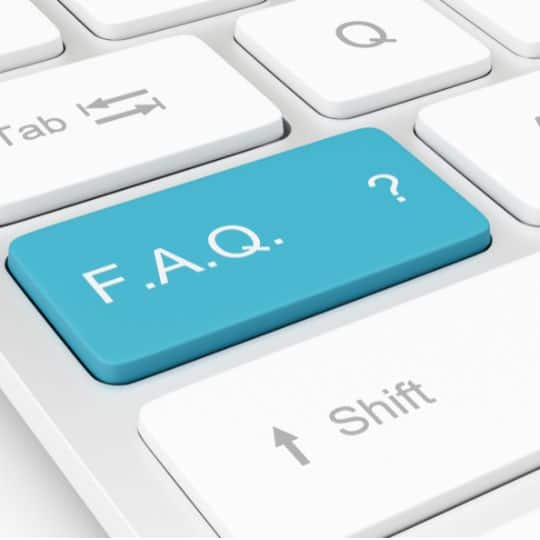
Hashimoto's Disease, also known as Hashimoto's Thyroiditis, is an autoimmune disorder that affects the thyroid gland. It occurs when the immune system mistakenly targets and damages the thyroid tissue, leading to inflammation and hormonal imbalance.
CBD offers potential benefits for Hashimoto's Disease, including its anti-inflammatory properties, stress reduction, immune system regulation, pain management, improved sleep, mood enhancement, potential weight management, and overall well-being support.CBD for Hyperthyroidism, including its anti-inflammatory properties, stress reduction, immune system regulation, pain management, improved sleep, mood enhancement, potential weight management, and overall well-being support.
Recommended CBD products for Hashimoto's Disease include Full-Spectrum CBD Oil, Capsules or Softgels, Topicals, and CBD Edibles. The choice depends on individual preferences and needs.
Yes, important considerations include CBD isolate products for those wanting pure CBD, choosing third-party tested products for quality assurance, opting for organically grown CBD to reduce exposure to chemicals, consulting with a healthcare professional before starting CBD, and starting with a low dose to gauge its effects alongside prescribed medications. Remember that CBD complements treatment and should not replace prescribed medications.
Conclusion – CBD for Hyperthyroidism and Hashimotos

In conclusion, CBD has shown promising potential in supporting individuals with Hashimoto's Disease. This natural compound derived from the Cannabis sativa plant has gained popularity for its various health benefits. While it is not a cure for Hashimoto's Disease, CBD may help manage some of the symptoms associated with this autoimmune condition.
CBD interacts with the endocannabinoid system in the body, which plays a crucial role in regulating various physiological functions, including the immune system. By influencing this system, CBD may help reduce inflammation and alleviate some of the discomfort that comes with Hashimoto's Disease. CBD for Hyperthyroidism.
It is important to note that CBD should not replace your prescribed medications or treatment plan for Hashimoto's Disease. Always consult with a healthcare professional before incorporating CBD into your routine, especially if you are already taking medications. Thank you for reading CBD for Hyperthyroidism and Hashimotos – we hoped you enjoyed it.
Now, here is an interactive question for you: Have you ever considered using CBD as a complementary approach to managing Hashimoto's Disease symptoms? Share your thoughts or experiences in the comments below, and let us continue the conversation on this fascinating topic!
The Real CBD for Hashimotos
-
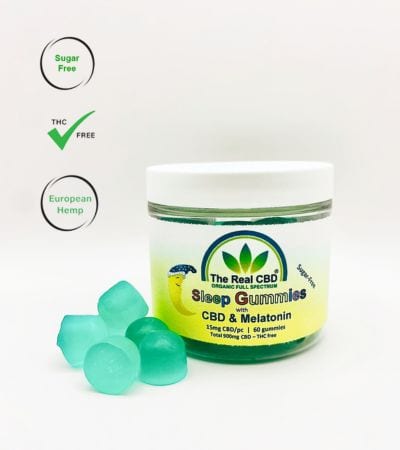 CBD Sleep Gummies€29.00
CBD Sleep Gummies€29.00 -
 40% Pain Relief oil€179.00
40% Pain Relief oil€179.00 -
Product on sale
 HHC VapeOriginal price was: €55.00.€35.00Current price is: €35.00.
HHC VapeOriginal price was: €55.00.€35.00Current price is: €35.00. -
Product on sale
 CBD Vape – Broad Spectrum€30.00 – €45.00
CBD Vape – Broad Spectrum€30.00 – €45.00 -
 20% CBD oil – Distillate€92.00
20% CBD oil – Distillate€92.00 -
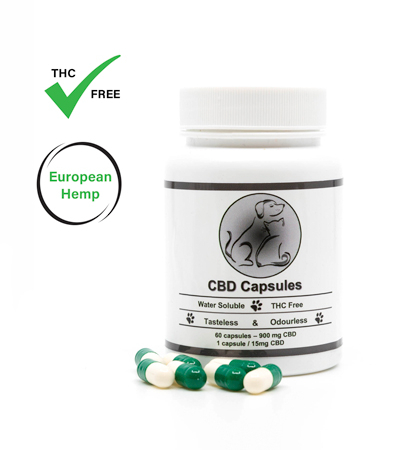 5% CBD Capsules for Pets€59.00
5% CBD Capsules for Pets€59.00 -
 CBD Capsules for Athletes€59.00
CBD Capsules for Athletes€59.00 -
 CBD Sleep Support Pack€108.00
CBD Sleep Support Pack€108.00 -
 CBD 3 for 2 pack€58.00 – €170.00
CBD 3 for 2 pack€58.00 – €170.00 -
 CBD Anti Anxiety Pack€179.00
CBD Anti Anxiety Pack€179.00 -
 CBD Anti Stress Pack€110.00
CBD Anti Stress Pack€110.00 -
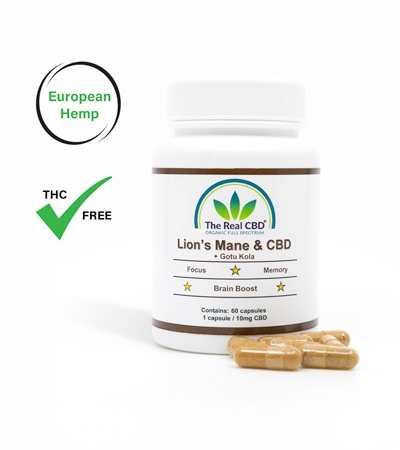 CBD and Lion's Mane Capsules€55.00
CBD and Lion's Mane Capsules€55.00

I am a certified expert in Medicinal Cannabis. We are all about giving correct and trustworthy information. We know how important it is to learn about CBD and cannabis, which is why we want to be your go-to source for trustworthy information. We help you improve your health by using our knowledge and experience as a starting point.














Leave a Reply
Want to join the discussion?Feel free to contribute!